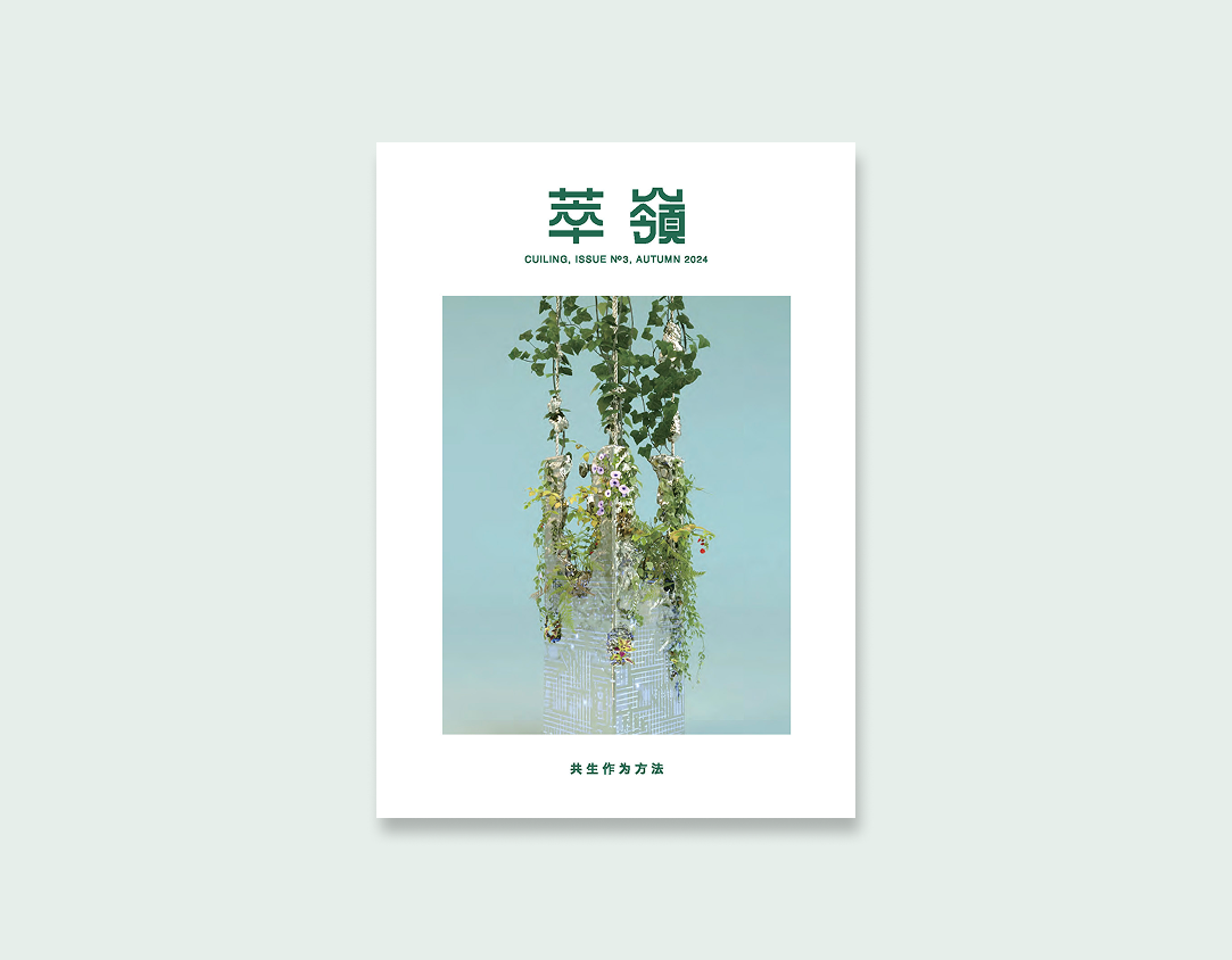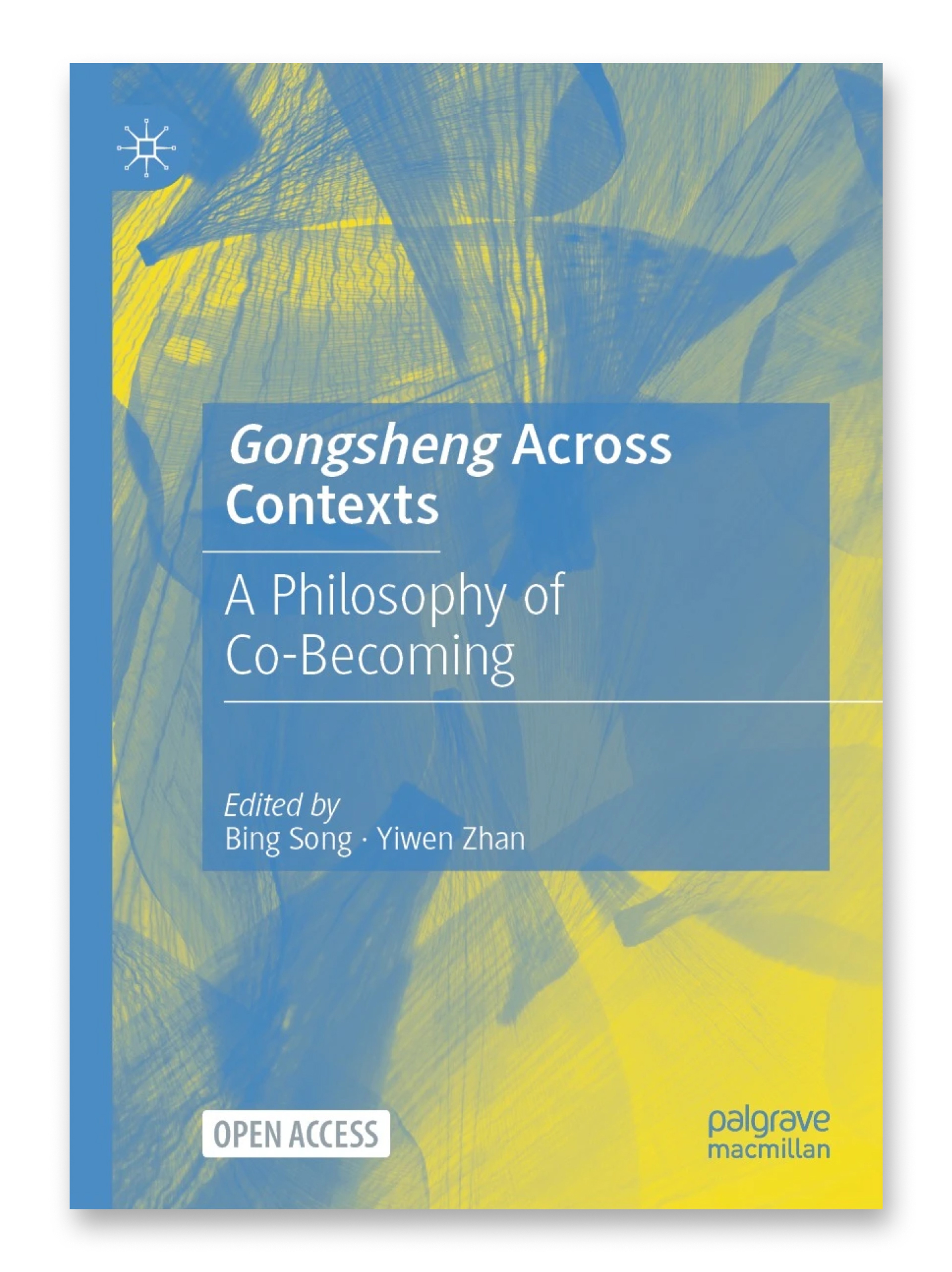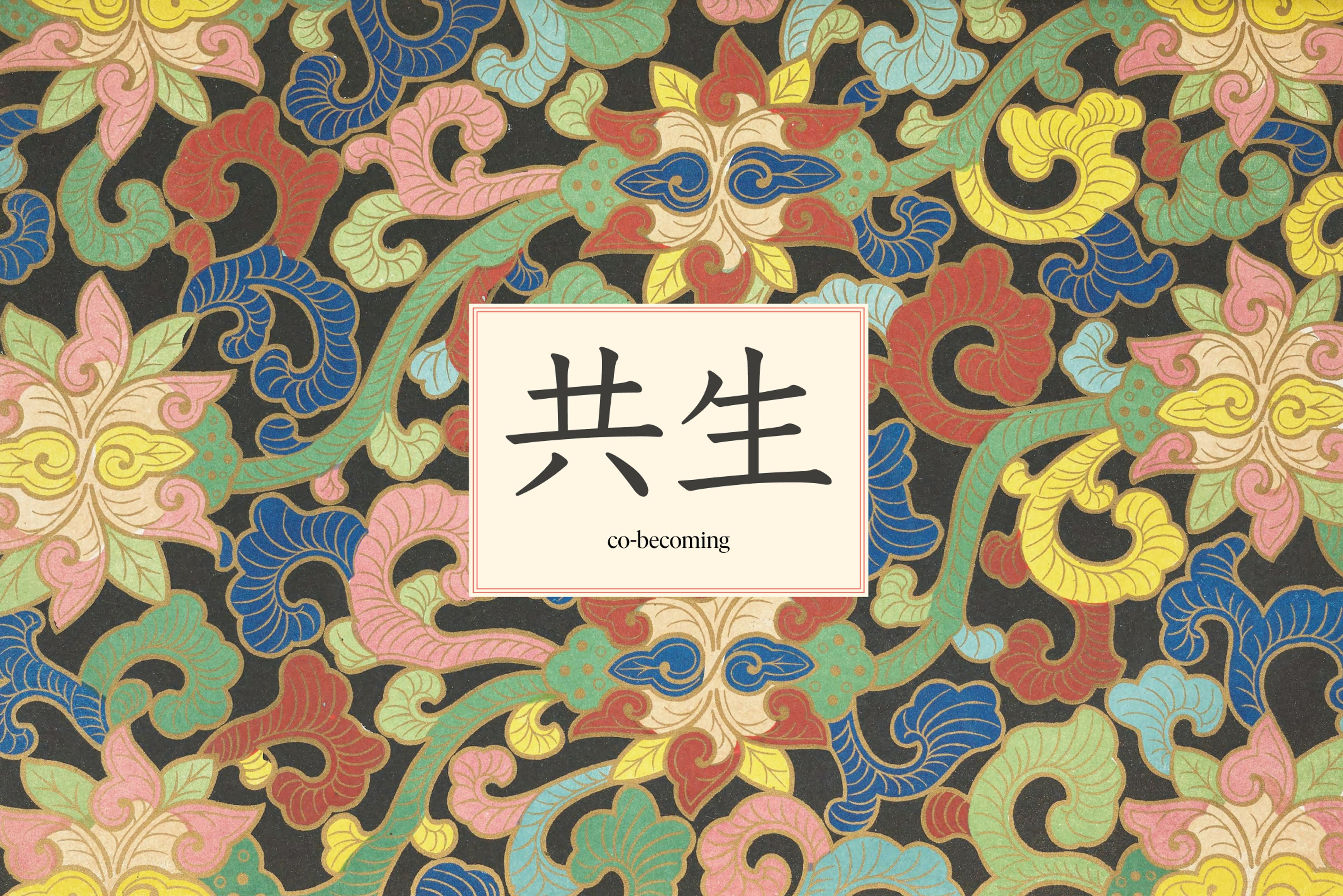
Co-becoming
- Team members:
- Bing Song
The notion of “co-becoming” — gongsheng in Chinese or kyōsei in Japanese (共生 in both written Chinese and Japanese kanji) — offers a valuable opportunity to enrich and transform our worldview, fostering broader planetary thinking. Gongsheng and kyōsei refer to a conception of the world as consisting of mutually embedded, coexistent, and co-generating entities. The rich meanings behind the concept can be traced back through Confucianism, Daoism, and Buddhism, as well as folk belief systems and practices in many East Asian countries.
The contemporary notion of “co-becoming” has been widely deployed in East Asian societies, including Chinese mainland, Taiwan, Japan, and South Korea, and across political, social, economic, and commercial spheres in these societies. Challenging and enriching the mainstream modern notion of the individual as an independent, self-contained, and autonomous agent, the notion gives us a “planetary” framework with which we can rethink our self-perceptions, our relationship with “others,” and to the environment, and allows us to formulate a guide for actions to address planetary scale challenges.
In August 2021, the Berggruen Institute China launched the project “Co-becoming: A Planetary View Inspired by East Asian Philosophies.” The first three workshops: “Gongsheng: Perspectives of Life Science and Philosophy,” “The Construction of the ‘Gongsheng’ Concept and Its Implications,” and “Boundaries, Cohesion, and Planetary Governance,” culminated in the publication of Gongsheng Across Contexts: A Philosophy of Co-Becoming (Palgrave Macmillan, January 2024), an interdisciplinary exploration of “co-becoming” in both classical and modern contexts.
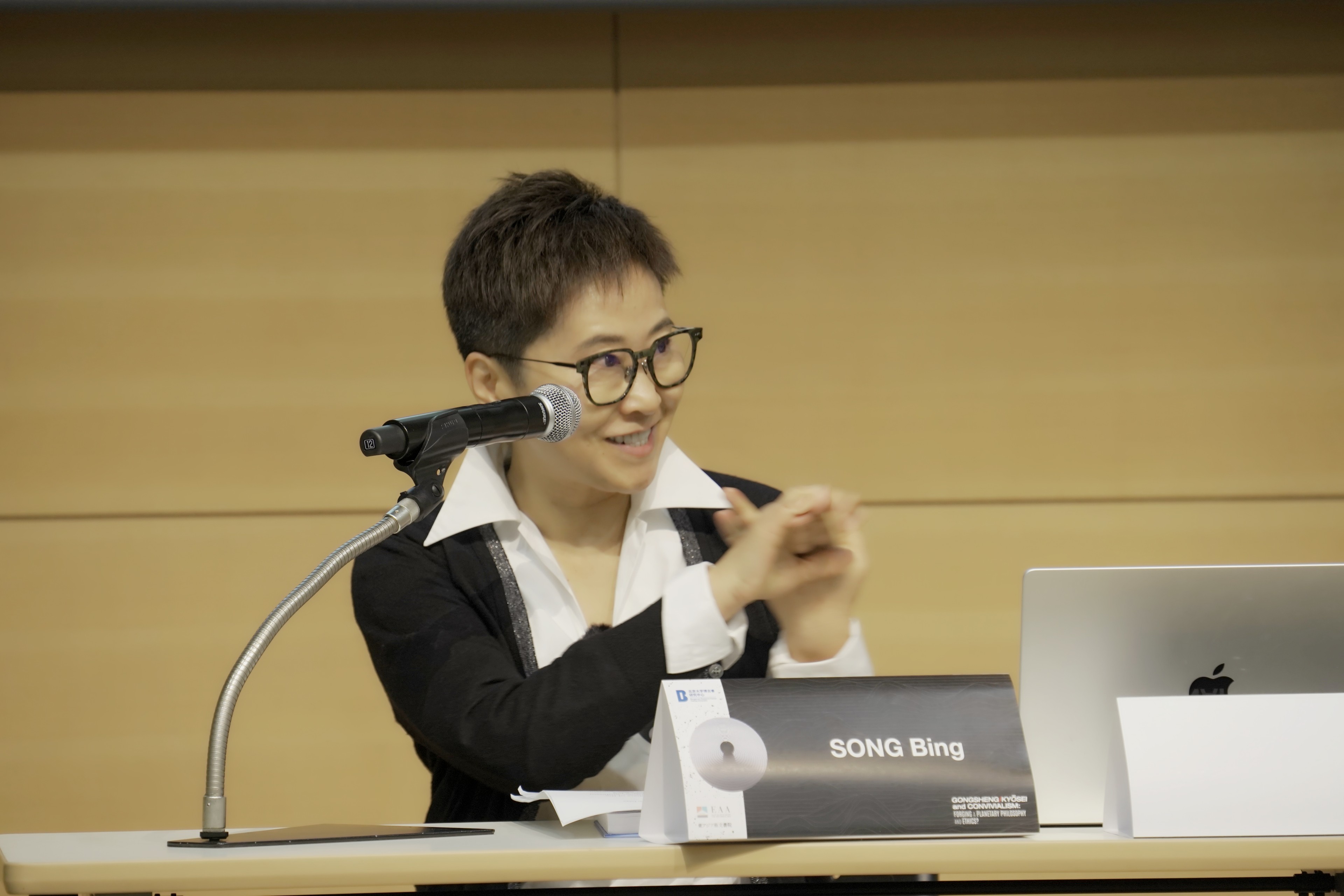
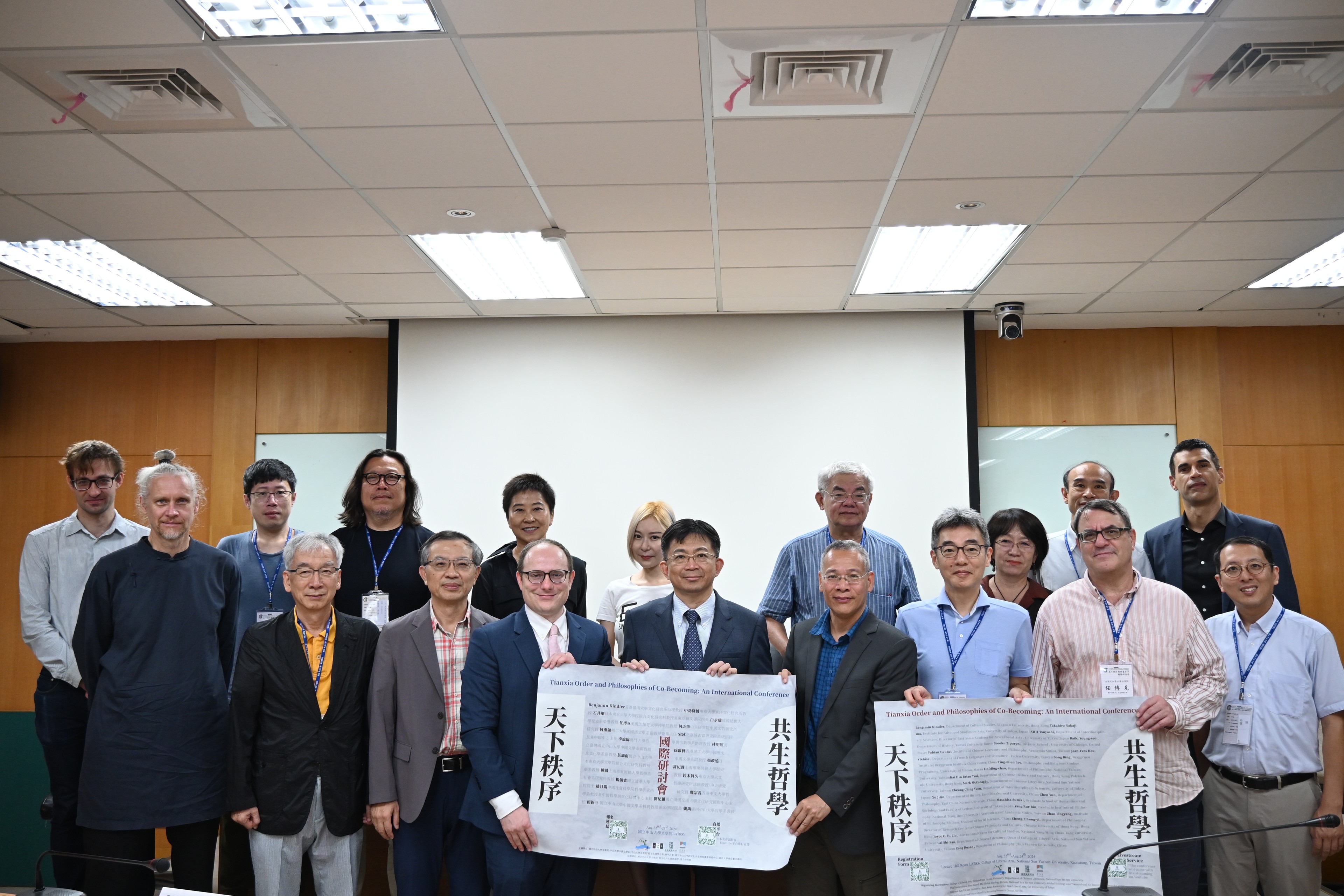
On March 29–30, 2024, in collaboration with the East Asian Academy of Liberal Arts at the University of Tokyo, the Berggruen Institute China hosted the fourth workshop, “Gongsheng/Kyōsei and Convivialism: Forging a Planetary Philosophy and Ethics?” Scholars from China, Japan, South Korea, France, and Germany examined the philosophical roots and socio-political applications of “co-becoming” across cultures, exploring its potential to inspire governance reforms in the planetary age.
Papers from the workshop formed the foundation of Issue III of Cuiling magazine, titled “Co-becoming as Method.” Building on the themes explored in the magazine, a second volume in the series, also titled Co-becoming as Method, is slated for release by Palgrave Macmillan in late 2025.
Ms. Song Bing, Senior Vice President of the Berggruen Institute and Director of the Institute’s China Center, expanded the institute’s impact by attending the “Tianxia Order and Philosophies of Co-Becoming: An International Conference” in Kaohsiung, from August 22–24, 2024, and participating in the discussion “Extra-Human & Extra-Planetary” at the Planetary Summit in Venice from November 23–24, 2024.
Sign-up for Co-becoming Updates
Required fields are marked with *
